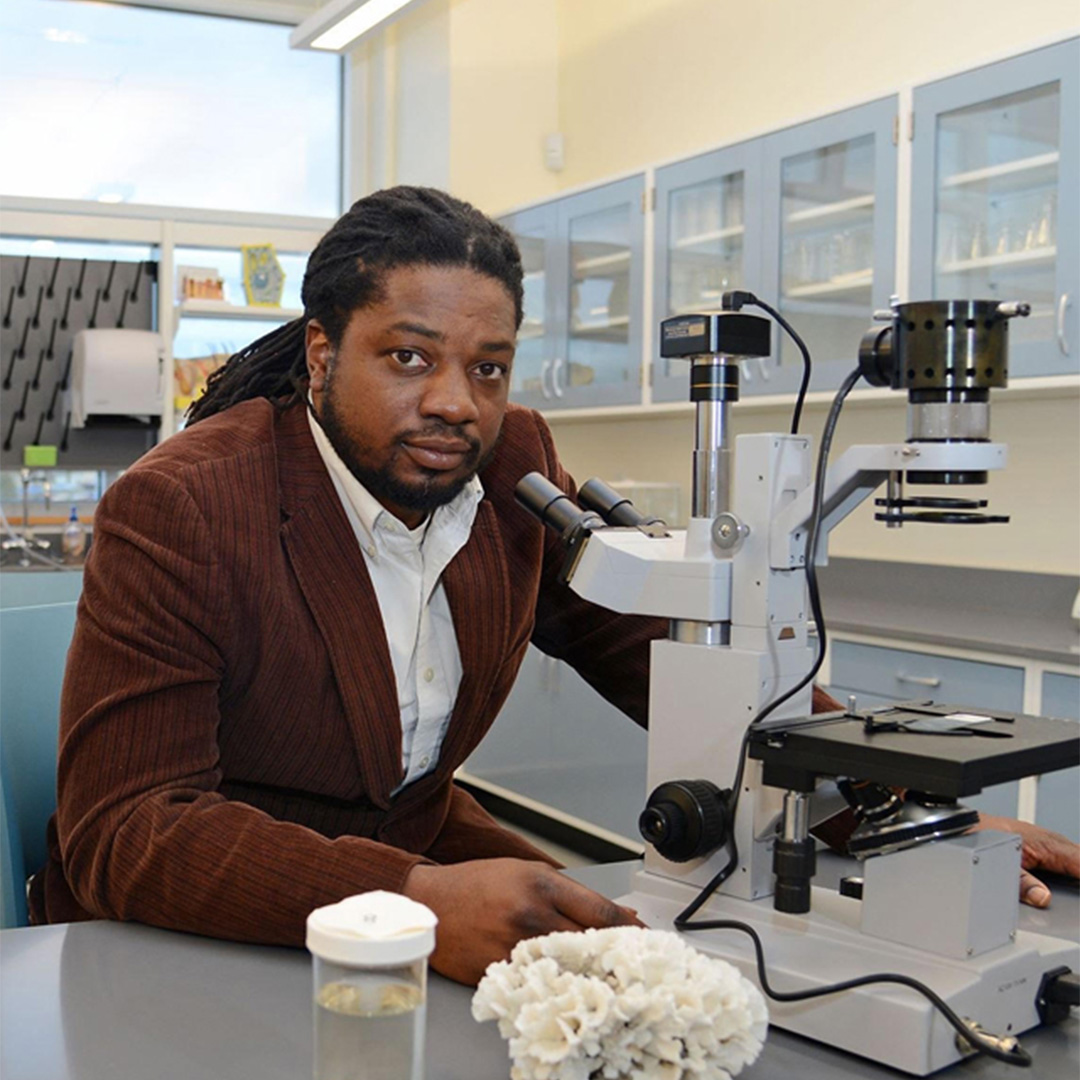Dr. Milton Muldrow Jr. Collaborates with Wondrium to Explain the Science of Synthetic Biology

The rapidly evolving field of synthetic biology is revolutionizing life on earth. In a new video-based course, Wilmington University’s Dr. Milton Muldrow is teaching a worldwide audience how the science works and where it’s heading.
Dr. Muldrow, WilmU’s director of natural science programs, developed “Synthetic Biology: Life’s Extraordinary New Worlds” for Wondrium (formerly known as The Great Courses), an educational video-on-demand service, as well as for Amazon’s Audible audiobook service.
Two years in the making, the nine-hour, 18-episode course “was one of the toughest things I’ve ever done,” says Dr. Muldrow. “It was new, it was exciting, it was a challenge, and it was a great experience.”
The service’s recruiters contacted him after viewing one of his TEDx talks online. The production of an introductory episode and market research on its potential appeal to viewers followed, as did Dr. Muldrow’s drafting of lesson plans for the series. “That document was as long as my dissertation,” he recalls.
He then spent a “grueling” week at the service’s studios in northern Virginia to record four or five of the lessons each day. “Teaching in front of a camera is completely different from teaching in front of a class,” says Dr. Muldrow.
His academic colleagues had no doubt about his ability to deliver results, though. “Dr. Muldrow leverages his expertise and passion for natural sciences to develop innovative, engaging, and practical learning experiences for students,” says Dr. Aaron Sebach, dean of WilmU’s College of Health Professions and Natural Sciences.
Synthetic biology combines and channels advances in genetic engineering, biotechnology, molecular biology, computer science, and evolutionary biology, among other scientific subspecialties, to redesign or create aspects of nature. Medicine, manufacturing, and agriculture have already benefited from these innovations.
“Synthetic biology is going to influence many fields of human life,” says Dr. Muldrow. “It already has: what we eat, what we wear, the materials all around us. My hope is that people will learn about how and why that is happening, and what it can mean to our changing world.”
Learn more about WilmU’s natural science degree programs by exploring our:



